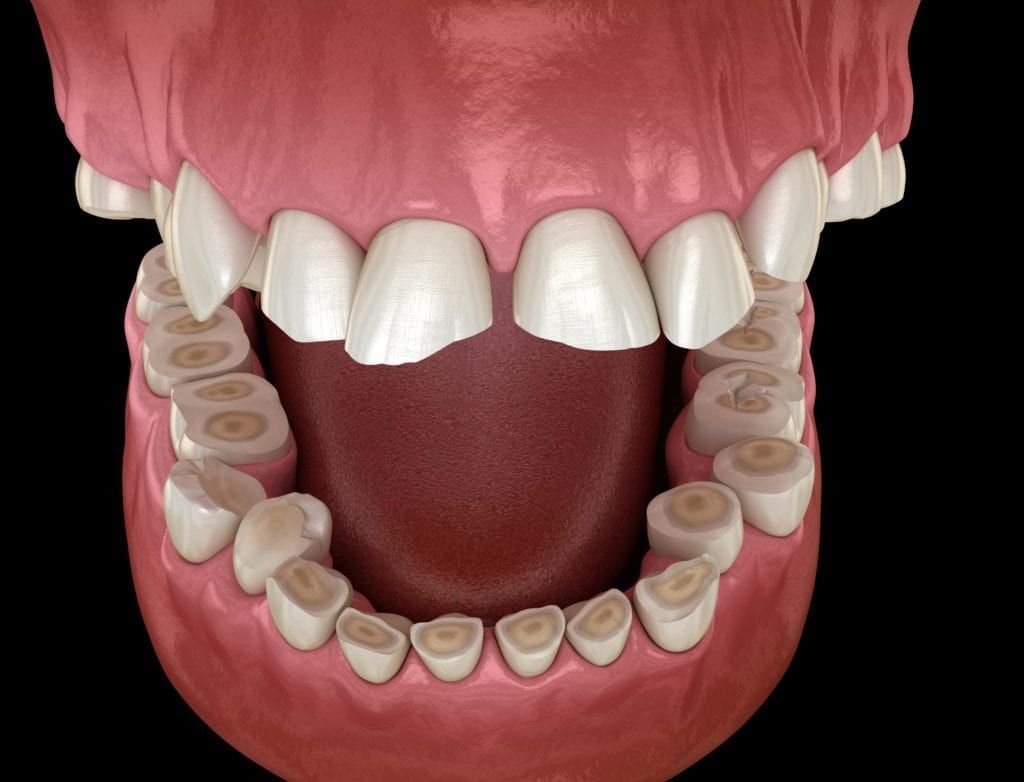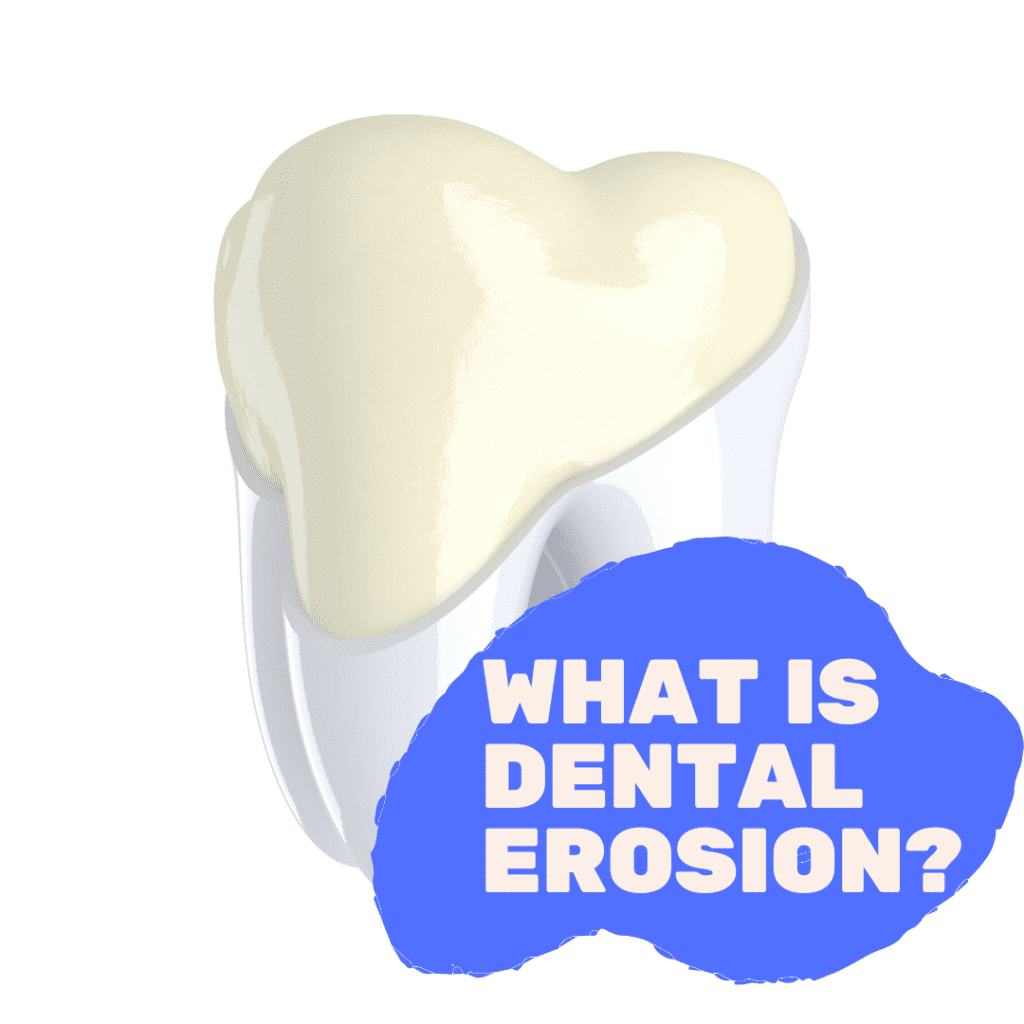Tooth enamel is the outermost layer of your teeth and it is responsible for protecting the underlying dentin and pulp layers from harmful bacteria. In fact, enamel is the strongest material in the body and is 96% minerals. This strength makes it ideal to protect the underlying tooth structures, however it is by no means indestructible.
Enamel is composed of hydroxyapatite, which is the scientific term for crystalline calcium phosphate. Basically what this means is that the outer layer of your teeth are made up of calcium and phosphorus molecules that are arranged in a crystalline pattern. While this arrangement of minerals is very strong, it can still be broken down by demineralization.
Demineralization is the breakdown of tooth enamel that occurs as a result of lactic acid build up produced by bacteria. Once the enamel begins to demineralize, this can quickly lead to the formation of dental cavities and can even escalate to a pulp infection if not properly treated. However, tooth enamel can also wear down for other reasons besides bacteria.
When this happens, it is known as dental erosion. When it first begins, dental erosion may not be immediately noticeable to you. However, your dentist will be able to identify it. As the enamel continues to erode, you will likely start to notice various symptoms such as discoloration, indentations on the tooth, teeth that damage easily, and tooth sensitivity.
Dental erosion can be caused by:

Bruxism
Teeth grinding and clenching, also known as bruxism, can cause enamel erosion by constantly exposing the tooth enamel to excessive force. Grinding or clenching the teeth up against one another means that both these strong surfaces are essentially destroying each other. Although significant problems may not occur overnight, the continued bruxism will cause a variety of dental concerns, such as prematurely worn enamel.
Dry Mouth
People who have limited saliva production due to certain medical conditions or medications are at an increased risk of enamel erosion. This is because saliva is an essential substance used to regulate acid content in the mouth. When less saliva is produced, this allows higher concentrations of acid to be present, which results in erosion.

Diet
Acids are also found in various foods and beverages. While consuming acidic foods and beverages once in a while does not cause significant problems, the excessive consumption of acidic substances exposes your enamel to more acid. Acids are commonly found in apples, rhubarb, berries, and citrus fruits, as well as in fruit juices and sodas that contain citric or phosphoric acid.
Stomach Acid
Enamel erosion can also be the result of continued or prolonged exposure to stomach acid. While this particular cause does not affect everyone, it is seen in individuals who have GERD or other medical conditions that can result in frequent vomiting. Stomach acid is extremely acidic and constant exposure will wear down the enamel over time.
As you can see, even though tooth enamel is the strongest substance in the body, it can still be negatively affected by dental erosion. This is due to the simple fact that teeth enamel can wear down when exposed to the excessive force of bruxism or high acid concentrations as a result of dry mouth, diet, and stomach acid. Since erosion may or may not produce symptoms, it is important to schedule regular dental appointments with your general dentist every six months so they can evaluate the condition of your enamel.

Dr. Michael C. Shuck received his Doctor of Dental Surgery (DDS) degree from the Medical College of Virginia, Cum Laude. He takes part in many volunteer outreach events, including Virginia’s Mission of Mercy project, Virginia Special Olympics, Give Kids a Smile, and the Jamaica Project. Dr. Shuck also is a regular volunteer at Williamsburg’s Olde Towne Medical Center. He actively participates with Virginia’s Donated Dental Service. Dr. Shuck has been a practicing dentist in the Williamsburg, Virginia area since 2007.


